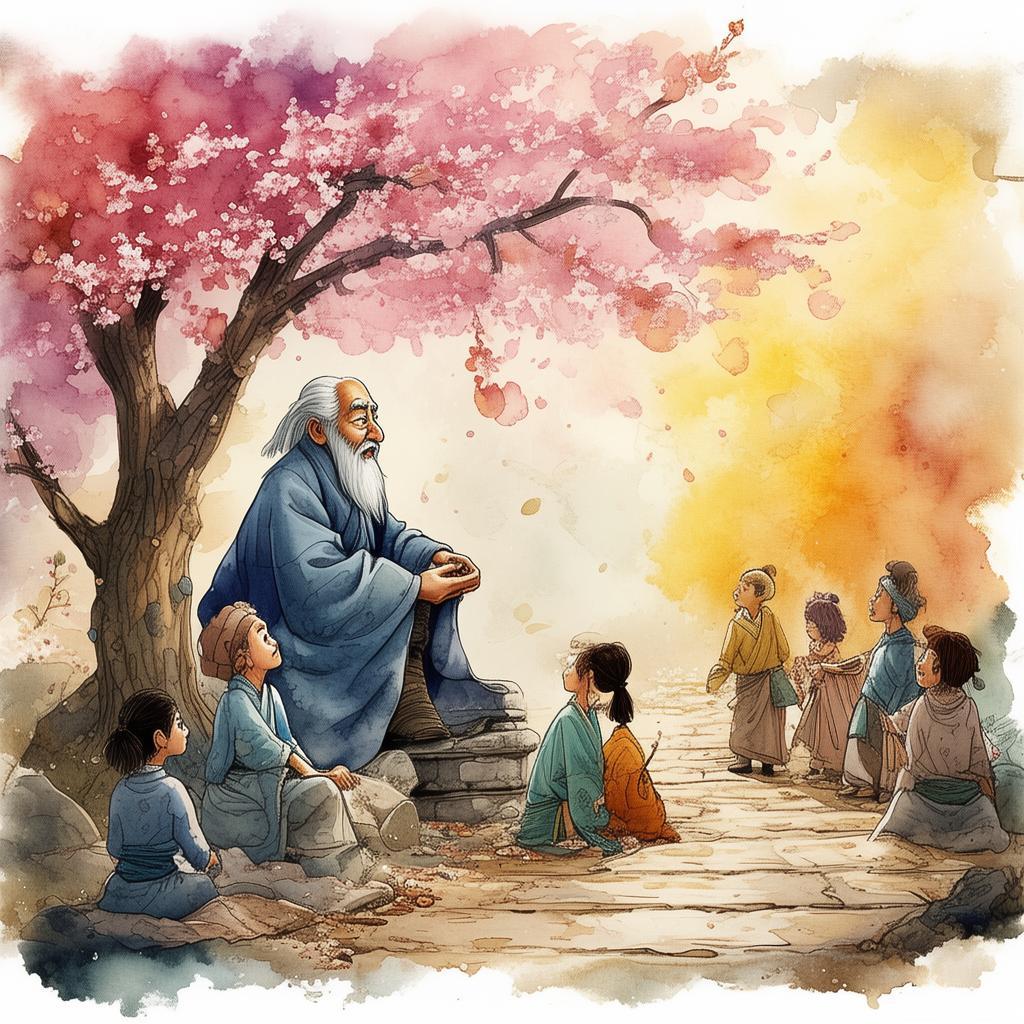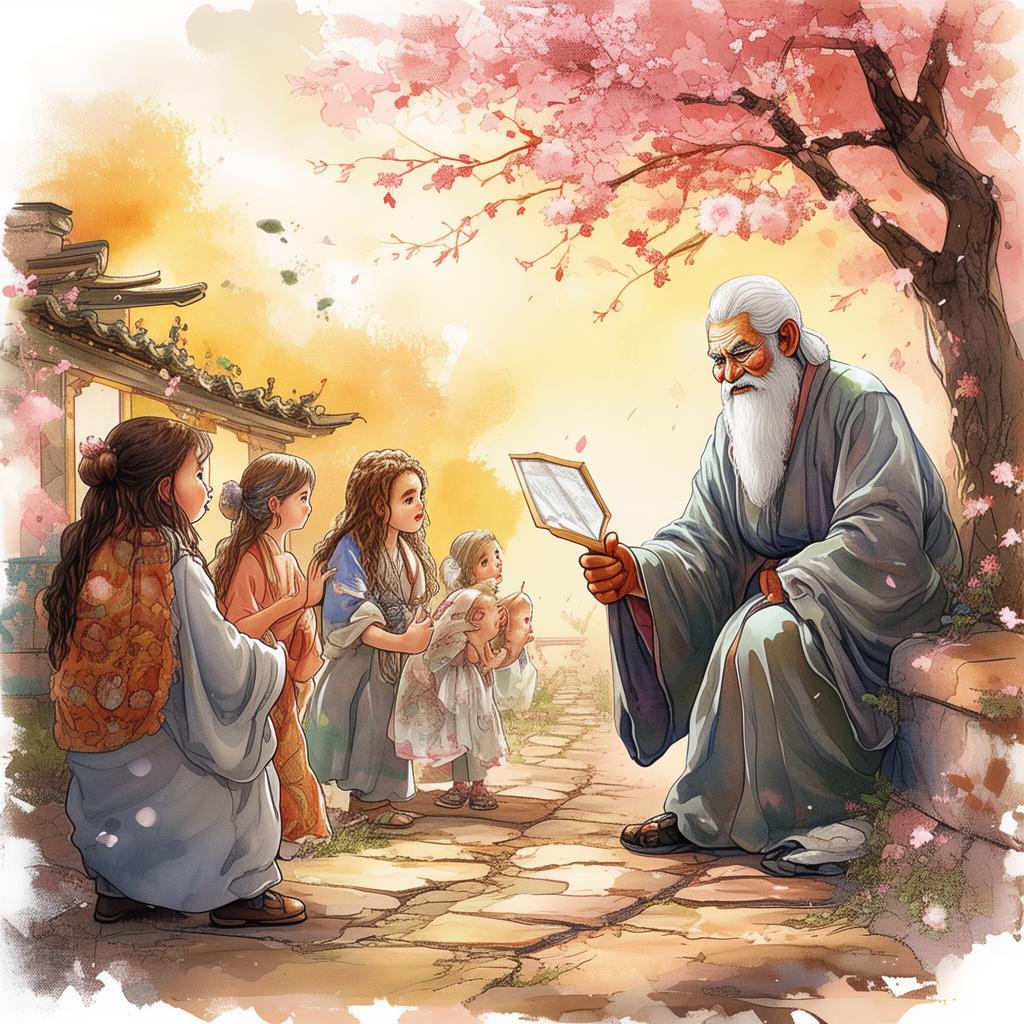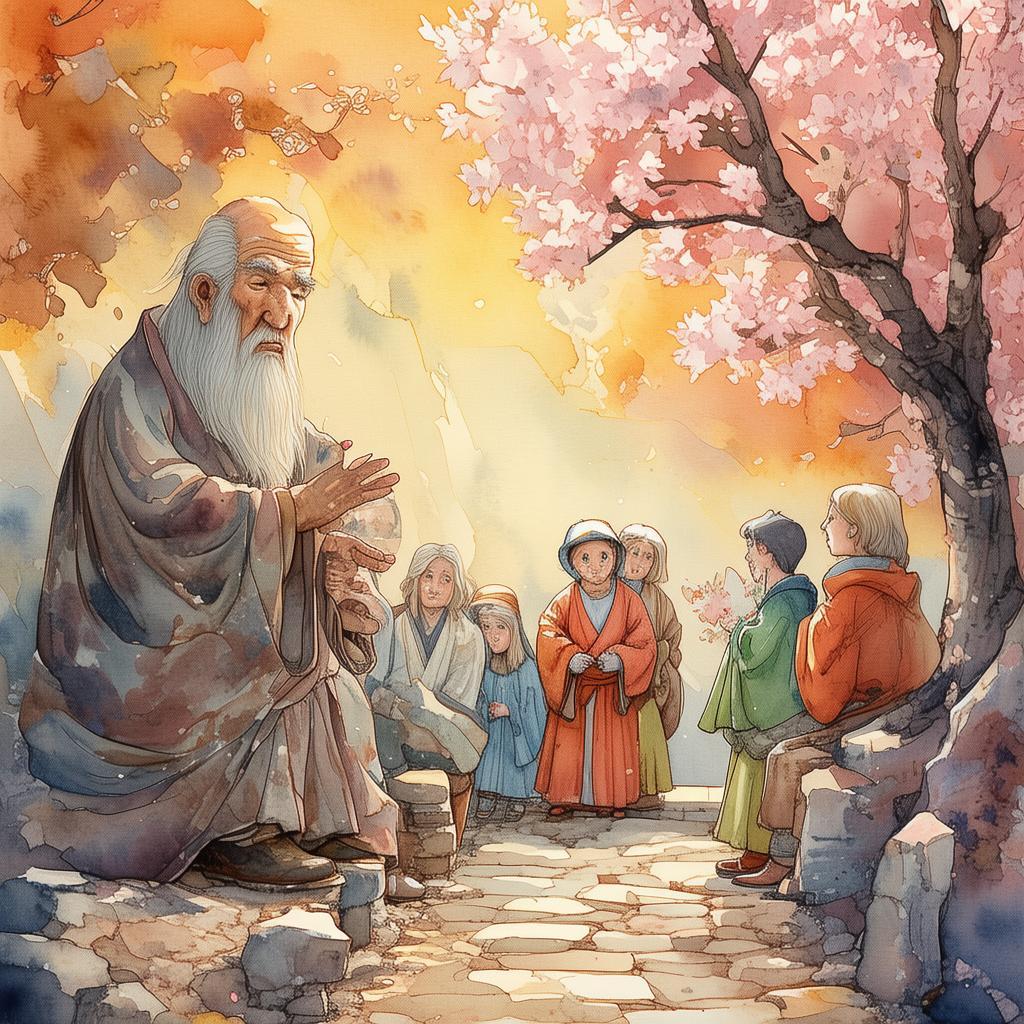Opium's Echo: A Dowager's Vision of the Future
In the waning years of the Qing Dynasty, amidst the bustling streets of the ancient capital, there lived an elderly dowager, Lady Wen. She was a figure of both mystery and power, a woman whose life was as tumultuous as the times in which she lived. Her opium dreams were the talk of the town, for they were said to be filled with visions of the future, a future that often left those who heard them both awestruck and wary.
It was a cold winter night when Lady Wen's latest vision began to take shape. The air was thick with the scent of incense and the hum of distant lanterns. She lay in her opulent chamber, a room adorned with intricate carvings and tapestries that depicted scenes of the Qing Dynasty's glory days. In her hands, she held a delicate pipe, the stem adorned with jade and the bowl filled with the finest opium, a drug that was both a comfort and a curse.
As the smoke curled lazily around her, Lady Wen's eyes began to drift. She saw herself as a young woman, full of dreams and ambition, the daughter of a high-ranking official. She envisioned her life as one of power and influence, a life where she could shape the destiny of the nation. But as the vision unfolded, it took a darker turn.

She saw a China in turmoil, a nation on the brink of revolution. The streets were filled with unrest, the air thick with the scent of rebellion. The Dowager Empress, her former self, was portrayed as a figure of weakness, her rule being challenged by the very people she sought to protect. The vision was a chaotic tapestry of protest, blood, and change.
In her dream, Lady Wen saw herself as a revolutionary, a leader of the masses, fighting for a new China. She saw her own name etched into the annals of history, her legacy a beacon of hope in a dark time. But as the dream deepened, a twist emerged. The figure of the revolutionary was not her own; it was the spirit of her younger self, the self she had left behind in the quest for power.
As the vision reached its climax, Lady Wen saw her younger self being crowned as the leader of the new China, her dreams of power and influence finally realized. But in this new role, she was haunted by the memories of her former life, the life of the dowager, the life of the Empress. She realized that the power she had sought had corrupted her, that in the end, it had cost her her humanity.
The vision faded, and Lady Wen awoke to the cold of her chamber. She knew that her dreams and the dreams of the nation were intertwined. She understood that the future was not something to be feared, but embraced. With a heavy heart, she rose from her bed, determined to use her remaining years to guide the nation through the tumultuous times ahead.
As the days turned into weeks, Lady Wen's visions became more frequent, each one a glimpse into the future, a future that was as uncertain as it was hopeful. She began to share her visions with trusted advisors and scholars, hoping that they would help the nation navigate the coming storms.
One day, a young revolutionary named Sun Yat-sen visited Lady Wen. He had heard of her visions and sought her counsel. As they spoke, Lady Wen realized that the dreams of the nation were not just her own; they were the dreams of the people. She saw in Sun Yat-sen the spirit of the future, the man who would lead the revolution that would end the Qing Dynasty.
With a heavy heart, Lady Wen decided to support Sun Yat-sen, to use her remaining influence to help the nation transition to a new era. Her decision was not without its cost, as it meant turning her back on the life she had once envisioned for herself. But she knew that in doing so, she was not just serving her own dreams but the dreams of the entire nation.
The revolution came, as Lady Wen had seen in her visions, and with it came change. The Qing Dynasty fell, and a new China was born. Lady Wen, the dowager, was no longer the ruler she once was, but she remained a figure of respect and influence. Her visions had become a beacon of hope, a reminder that the future was not something to be feared but embraced.
The story of Lady Wen and her opium dreams became a legend, a tale of a woman who had seen the future and chosen to guide her nation through its darkest hour. Her legacy was one of sacrifice, hope, and the belief that even in the most turbulent times, the dreams of a nation could be a force for good.
✨ Original Statement ✨
All articles published on this website (including but not limited to text, images, videos, and other content) are original or authorized for reposting and are protected by relevant laws. Without the explicit written permission of this website, no individual or organization may copy, modify, repost, or use the content for commercial purposes.
If you need to quote or cooperate, please contact this site for authorization. We reserve the right to pursue legal responsibility for any unauthorized use.
Hereby declared.









